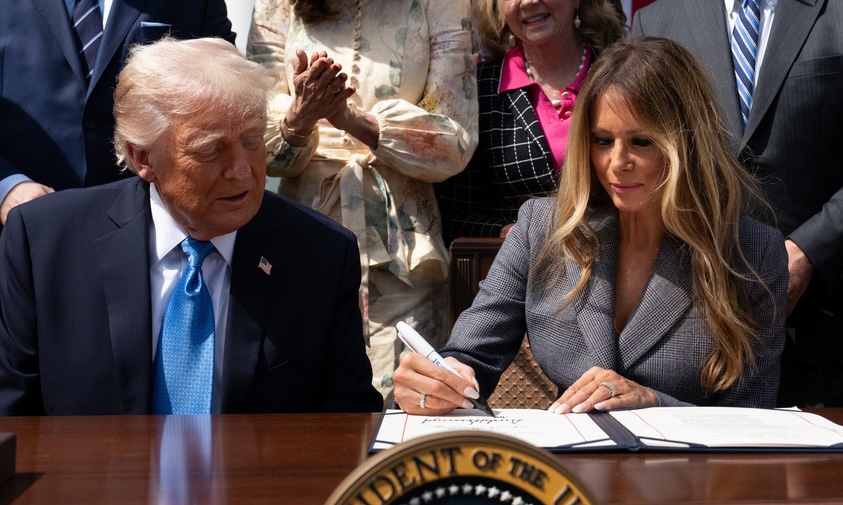Already a subscriber? Make sure to log into your account before viewing this content. You can access your account by hitting the “login” button on the top right corner. Still unable to see the content after signing in? Make sure your card on file is up-to-date.
President Donald Trump has signed a new federal law, the Take It Down Act, criminalizing the distribution of nonconsensual intimate images—including AI-generated deepfakes and revenge porn—after a bipartisan effort spearheaded by First Lady Melania Trump.
Getting into it: The new law, which passed the House in a 409–2 vote and cleared the Senate unanimously, makes it a federal crime to distribute intimate images or videos knowingly, whether real or computer-generated, without the subject’s consent. Offenders can face up to three years in prison. The law also requires social media platforms and websites to remove flagged content within 48 hours of receiving a complaint or be hit with fines from the Federal Trade Commission (FTC).

The legislation is specifically designed to address the growing misuse of artificial intelligence tools, which have made it easier to create realistic but fake explicit content.
First Lady Melania Trump played a central role in promoting the bill, tying it to her updated Be Best initiative, which now focuses on safeguarding children and families from digital exploitation. She said, “Today, through the Take It Down Act, we affirm that the well-being of our children is central to the future of our families and America. This legislation is a powerful step forward in our efforts to ensure that every American, especially young people, can feel better protected from their image or identity being abused.” The first lady called the new law a “national victory.”
Another view: The two lawmakers who voted against the bill, Congressman Thomas Massie, Congressman Eric Burlison, and some internet rights groups argue that while the concept of the law is great, it is susceptible to “abuse” and is too “vague.” Some have raised concerns that the law has no penalties for people who make false reports, which they say could be used to get anything “scrubbed off the internet.” They also say that while the Take It Down Act exempts email and internet companies, it does not exempt private messaging or storage providers.







